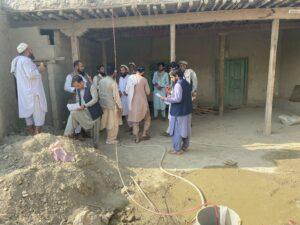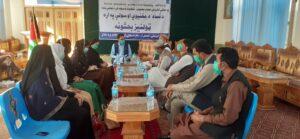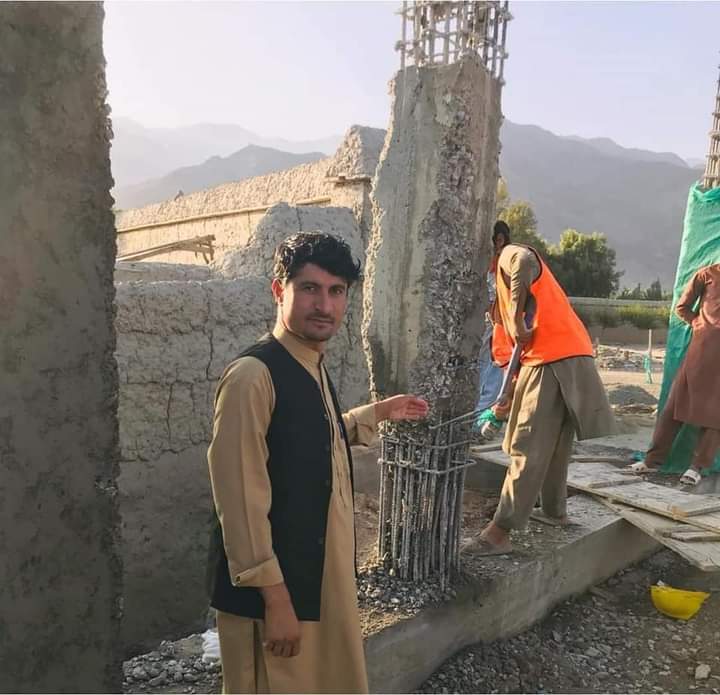KABUL (Pajhwok): The Kunar Province Youth Civil Society (KPYCS) says it monitored different development projects as part of its fight against corruption and helped complete some schemes and prevented corruption in others.
UNDP has recently established the KPYCS through its Anti-Corruption, Transparency, Integrity and Openness (ACTION) project with financial support from the Royal Danish Embassy in Kabul.
The KPYCS released a report of its activities fighting corruption and helping access to information.
The report says: “The Kunar Youth held a round-table discussion with civil society members and journalists on implementation of the Access to Information Law.”
Shoiab Gharawal, KPYCS head, said the youth civil society worked in 12 districts of Kunar province to ensure transparency and accountability. They encouraged officials to share their work reports with the people.
He said people for the first time dared to directly ask local officials in districts. The report said that the KPYCS has created joint monitoring committees in 12 districts and provided training to these committee members regarding monitoring. They helped stopped imminent corruption in some districts and resolved existing problems in development projects.
Corruption in concreting of a canal
Shoiab Gharawal said in the canal’s construction of Norgul district, the project manager tried to use large stones instead of seven to 20cm stones. Their monitoring committee  comprised of district officials and public representatives managed to stop this corruption. As a result, the project manager removed the large stones from the construction process, sought apology and assured it would not happen again.
comprised of district officials and public representatives managed to stop this corruption. As a result, the project manager removed the large stones from the construction process, sought apology and assured it would not happen again.
On representation of the monitoring committee, one person was tasked to monitor the process for the whole day to ensure that work is conducted transparently.
Corruption in construction of a mosque
According to Shoiab Gharawal, as a result of monitoring, the pillars of a recently-constructed mosque in Sarkano district were demolished because concrete was not properly made and the pillars were built without steel.
Corruption in onion protection project
While monitoring a small onion protection project in Kunar province, it was revealed that work on the project had been stopped for few months and farmers involved in the  project were not paid their dues, the KPYCS said in its report. After the committee monitoring, the Agriculture Department dispatched the required amount to farmers and work on the project was completed.
project were not paid their dues, the KPYCS said in its report. After the committee monitoring, the Agriculture Department dispatched the required amount to farmers and work on the project was completed.
Corruption in irrigation project
Corruption was thwarted in an irrigation project in the Khas Kunar provinces as well with the help of monitoring committee.
The committee monitored a well, which was 30-metre deep in documents but it dug 20 metres. The required machinery was installed to the well and the remaining work was also completed. After the monitoring, the company owner acknowledged his fault and pledged to complete the well down to 30 metres.
Corruption in clinics construction
The KPYCS in its report says they stopped corruption in reconstruction of some clinics through an investigative report. Three million afghanis had been provided for reconstruction of five clinics but even one percent work was not carried out. After the report, the company owner started work on the clinics and the construction work was still  underway.
underway.
On December 9, Anti-Corruption Day is going to be marked internationally. Fighting corruption is a global concern. While corruption impacts every country, evidence shows that it hurts poor people disproportionately.
Corruption hinders efforts to achieve the Sustainable Development Goals, undermines democracy and the rule of law, leads to violation of human rights, distorts markets, erodes quality of life and allows organised crime, terrorism and other threats to human security to flourish. It contributes to instability, poverty and is a dominant factor driving fragile countries towards state failure.
Visits: 48









GET IN TOUCH
NEWSLETTER
SUGGEST A STORY
PAJHWOK MOBILE APP